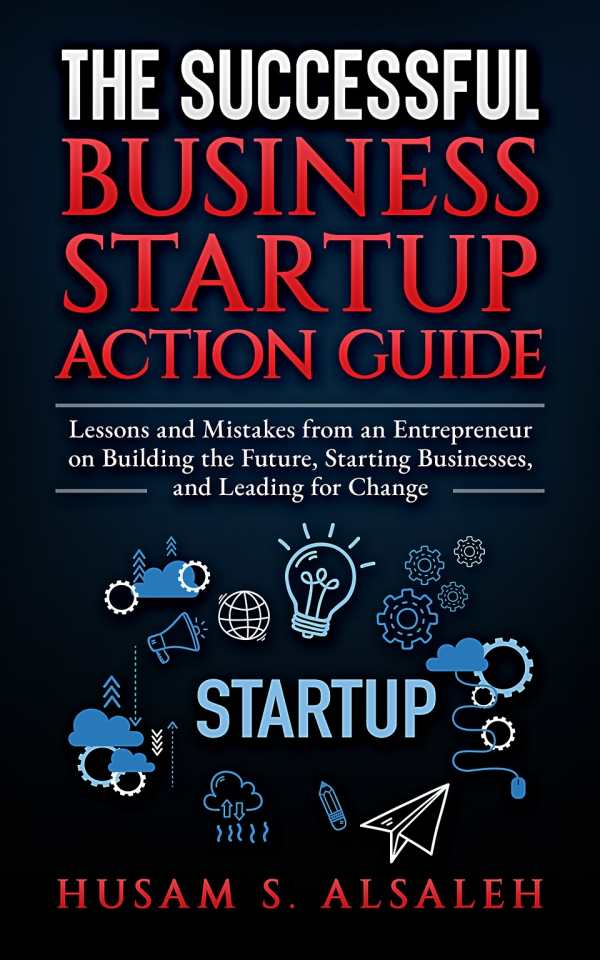The Successful Business Startup Action Guide
Lessons and Mistakes from an Entrepreneur on Building the Future, Starting Businesses, and Leading for Change
The Successful Business Startup Action Guide is an encouraging business book that draws leadership lessons from personal experiences.
Via trial and error, Husam S. Alsaleh weathered multiple attempts to get his startups off of the ground. Part memoir, part business book, his text The Successful Business Startup Action Guide chronicles these successes and failures, drawing lessons for new entrepreneurs from its personal examples.
The book lays out a method for developing an effective “strategic framework” by asking each individual business leader to answer the question, for their own company, “What problem are you trying to solve?” Alsaleh suggests that a business’s decisions should orbit around this identified central need. And once a potential solution is named, the book proposes best practices for every step of the process, including operational maintenance and transitioning to other business opportunities.
The book addresses topics including cash flow and market sizes; each related recommendation is complemented by a personal example, showing how adhering to it—or not—led Alsaleh to successes or failures. While some of these examples are too particular to be of general use or guidance, more actionable information is delivered in the book’s concluding chapter, which covers methods for scheduling a one-on-one consultation that are generally applicable.
Throughout the book, Alsaleh proves to be a compelling guide because he is willing to admit to his past mistakes; he encourages other entrepreneurs to be eager to learn from failures and be willing to do better in their next endeavors. Still, the book’s approach is casual to excess. It rushes through its original recommendations and devotes too much time to its reflections on Alsaleh’s personal stories, as with his memories of working at his father’s rental car business in Saudi Arabia, which he attended to from the bottom up—even, while functioning as its a janitor, overhearing other employees admit to misusing their authority. While some of its recollections of conversations amount to non sequiturs, the book’s optimistic tone is infectious; it imparts hope that following its methods and establishing a strategic framework will lead to success.
Ultimately, though, the book’s particular guidance for getting to success is too limited. Alsaleh’s own theories and concepts are often buried beneath references to the words and concepts of notable business leaders, authors, and economists. Indeed, most of the book’s chapters lean into the authority of other thinkers. Michael Porter’s Competitive Strategy, in particular, is referenced with such frequency that it sometimes overwhelms the book’s original points. Lengthy URLs are included in the text proper, and clunky footnotes appear throughout. In the end, the book’s potential to be of specific use to prospective entrepreneurs who are hoping to apply its fresh material to their own ventures is limited as a result of such habits.
Written to apprise new business owners of potential pitfalls ahead, The Successful Business Startup Action Guide draws leadership lessons from personal experiences.
Reviewed by
John M. Murray
Disclosure: This article is not an endorsement, but a review. The publisher of this book provided free copies of the book and paid a small fee to have their book reviewed by a professional reviewer. Foreword Reviews and Clarion Reviews make no guarantee that the publisher will receive a positive review. Foreword Magazine, Inc. is disclosing this in accordance with the Federal Trade Commission’s 16 CFR, Part 255.

